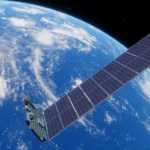
The improvement in relations between the two powers cannot mask old commercial tensions. Better communication is important precisely because the structural problem between China and the US is likely insoluble.
Tensions between America and China were so high a year ago that Janet Yellen couldn’t get permission to go there. Now the US Treasury Secretary is a social media hit in China.
Yellen’s two trips – the most recent last week, when she received the red carpet treatment – produced no upsets in Beijing: America and Europe continue to suffer from the dumping of goods from China.
On Wednesday, US President Joe Biden said he would triple tariffs on Chinese steel imports – a pure electoral gimmick, as they cover just 0.6% of total US steel demand. However, much of the threat has disappeared from the world’s most dangerous relationship.
Part of this stems from China’s interaction with an employee who reminds many of their favorite grandmother. “There is a personal element to this,” says Yellen. “It involves respect and listening to the other side.”
In the current US climate, even speaking to China in a civilized manner puts you under suspicion. This is true even if you are “pleasantly disagreeing,” as Yellen does. This is also how Biden’s national security adviser, Jake Sullivan, interacts with Wang Yi, China’s foreign minister.
These seemingly unproductive dialogues have, however, led to a gradual thaw in the US-China cold war. It’s the nature of the media to only notice when things go wrong. Biden’s speech about “controlled competition” is neither detente nor war. However, when tensions between the US and China rise again, as they undoubtedly will, this gardening will help.
Yellen is unlikely to get anywhere on Chinese dumping. This is despite the EU and others sharing the US’s concern that its automotive and renewable energy sectors could be disastrously hit by heavily subsidized Chinese rivals.
China’s overcapacity problem is likely to worsen. Elon Musk, whose Tesla is going through a rough patch, recently abandoned plans to launch an EV priced at a reduced price of $27,000. It would still have been almost triple the price of BYD’s Chinese competitors.
Yellen lodged such complaints with her counterpart, He Lifeng, to no avail. But from a global perspective, China’s actions appear less egregious. America is also subsidizing its electric vehicle and clean energy sectors. Biden’s misnamed Inflation Reduction Act is a Chinese solution to the same problem.
US and Chinese working groups
China’s flooding of global markets with cheap renewables — batteries, solar panels and wind turbines — is great for emissions but bad for U.S. manufacturing jobs. Yellen says more punitive tariffs will result if China refuses to change its behavior. Either way, humanity as a whole is benefiting from this particular run on subsidies.
In some areas, they are even working together. When Donald Trump took office, he discarded the US-China strategic and economic dialogue that was established by George W Bush and expanded under Barack Obama. In all but name, Yellen has resurrected the economic half of it.
Yellen and He created bilateral working groups on illicit money, global financial stability and green finance.
The first of these includes fentanyl, which is killing hundreds of thousands of Americans and comes mainly from China. Mike Gallagher, chairman of the hawkish House Committee on the Chinese Communist Party, said this week that the CCP “wants more Americans dead.”
This is caricatural. In practice, Yellen says China is finally taking steps to contain the problem. “They are cooperating now on fentanyl,” she says.
The two militaries are also talking again – a security measure against the risk of lethal miscalculation in relation to Taiwan. On Tuesday, Lloyd Austin, the US Secretary of Defense, spoke for the first time with his counterpart, Dong Jun.
These routines are important precisely because the structural problem between China and the US is probably insoluble.
Even if it were not the most powerful autocracy and democracy in the world, respectively, a rising China would be destined to come into conflict with the world leader. Sullivan’s “small yard, high fence” for Chinese semiconductors and AI continues to expand into a medium-sized yard with a taller fence.
That could lead to the economic decoupling that Biden officials swear is not America’s goal.
Analysis by Edward Luce of the Financial Times.
Source: https://www.ocafezinho.com/2024/04/21/opiniao-acao-comercial-de-biden-contra-a-china-e-apenas-um-trumpismo-politizado/

